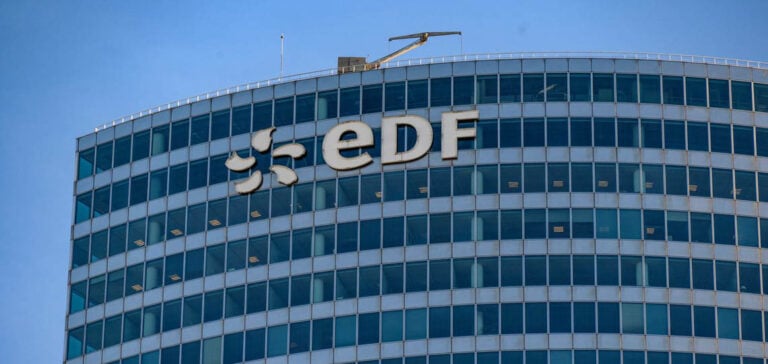The Agence des Participations de l’État and the Green Transition go hand in hand, shaping a more sustainable economic future for France. The APE, which holds the State’s shares in 85 French companies, is stepping up its commitment to government priorities, notably climate change, value sharing and green reindustrialization. The report covering the period from June 2022 to June 2023 highlights the resilience of the State’s portfolio, whose value has risen from 128 to 153 billion euros.
The increase in the value of the portfolio is mainly attributable to the full takeover ofEDF by the French State during the year, resulting from its delisting. This decision was a key moment for the Agence des Participations de l’État, as it demonstrates the government’s commitment to decarbonized, affordable energy. In addition, it is important to note that the solid performance of listed companies such as Engie, Safran, Thales, Orange, Air France and Renault also contributed to this increase.
Involvement of EDF and Renault
Agence des Participations de l’État would not be complete without mentioning the major takeover of EDF. This strategic decision was the result of in-depth discussions and has strengthened the State’s position as a key player in the energy industry. As France’s leading electricity supplier, EDF plays a vital role in the transition to abundant, low-carbon, low-cost electricity. The decision has been hailed as a step forward towards meeting carbon emission reduction targets.
Renault is another company that deserves special attention. The company recently implemented an ambitious strategy aimed at dividing its activities into separate entities, one dedicated to combustion engines and the other to electric vehicles. This innovative approach is designed to meet changing market needs and support the transition to electric mobility. The Agence des Participations de l’État recognizes this initiative as an appropriate response to the challenges posed by decarbonization and sustainable mobility.
Responsible Pay
A key aspect of APE’s policy is responsible compensation. The French government has chosen not to receive dividends from EDF or SNCF during this period, in order to encourage their continued development. This decision underlines the French government’s commitment to supporting public companies so that they can invest in projects that are crucial to France’s energy and industrial future.
For the remainder of the portfolio, the French State received 2.25 billion euros in dividends from its companies in 2022, including 1.36 billion in cash and 894 million in securities. The aim of this policy is to encourage responsible management of companies in which the French State holds shares. The APE also advocates a moderate remuneration policy for the executives of its participating companies. The French government is in favor of an approach that promotes a fair distribution of the value created, notably through employee shareholding.
Promoting Green Industry
Promoting green industry is a priority for the Agence des Participations de l’État. The agency actively promotes a responsible purchasing policy within its companies, notably through the acquisition of electric vehicles. This promotes the transition to cleaner mobility and supports efforts to reduce greenhouse gas emissions.
In addition, the APE would like its companies that own land favorable to the development of green industry to make it available. This particularly concerns major ports, which have a key role to play in transforming industry and creating jobs in sectors linked to environmental sustainability.
Collaboration with French Tech
French Tech, as the driving force behind innovation in France, occupies a special place in the vision of the Agence des Participations de l’État. The APE is encouraging the major groups under its supervision to work more closely with French start-ups. The aim of this collaboration is to stimulate innovation, foster the development of cutting-edge technological solutions, and boost the competitiveness of French industry.
Executive compensation and performance
With regard to the policy of moderate executive compensation, APE’s Managing Director stresses that this approach has not prevented the arrival of excellent executives at the head of participating companies. This moderation was introduced to ensure a fair distribution of resources and preserve the financial viability of companies. Luca de Meo, head of Renault, and Ben Smith, who headed Air France, are examples of leaders who have brought exceptional management and a spectacular turnaround to their respective companies.
In conclusion, the Agence des Participations de l’État plays an essential role in achieving the government’s climate, value-sharing and green industry objectives. His strategic decisions, such as the takeover of EDF and support for Renault, shaped France’s industrial future. The government’s commitment to innovation, sustainability and economic competitiveness is demonstrated by its responsible compensation policy, its promotion of green industry, and its collaboration with French Tech.
Agence des Participations de l’État’s commitment to the climate and green industry illustrates its key role in promoting government priorities. Its holdings, including those of EDF and Renault, have a positive influence on these sectors, while at the same time adopting a responsible compensation policy.






















